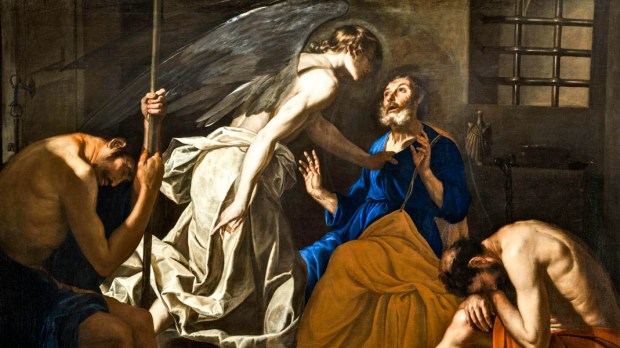Lenten Campaign 2025
This content is free of charge, as are all our articles.
Support us with a donation that is tax-deductible and enable us to continue to reach millions of readers.
Do not ignore this one fact, beloved, that with the Lord one day is like a thousand years and a thousand years like one day. The Lord does not delay his promise, as some regard “delay,” but he is patient with you, not wishing that any should perish but that all should come to repentance. (2 Peter 3:8-9)
As we begin the second week of Advent, the younger ones are each day opening a new window in their Advent calendars and marking how many days are left before Christmas. Anticipation is growing, and with it a sense of impatience.
It’s always the way. Whether we’re looking forward to a family reunion, or a wedding, or a vacation, the waiting is hard.
How often do the promises of the Lord feel delayed, or the blessings too long in coming? We are impatient but the Lord is not. And that’s a very good thing, even if it sometimes seems confusing to us.
We read scripture and see that while Christ Jesus says we will not know the day or the hour of his return, Saint Paul continually anticipates the parousia and lives each day in expectation of it. But we look back over 2,000 years and wonder, “Really?” And we even begin to doubt.
At Mass the celebrant prays in our name, “We await the blessed hope and the coming of Our Savior, Jesus Christ,” but are we really? Are we awaiting that blessed hope and that coming, or are we thinking, “that’s never going to happen. It’s a metaphor for our own death,” and doing as we please?
Unlike Paul, Peter looks for the coming of Christ with eyes trained toward Eternity. He echoes a line from Psalm 90 — “To your eyes a thousand years/are like yesterday, come and gone/no more than a watch in the night” — to remind us that God is outside of time, as we understand it, and that what seems to be “delay” to us, in the limited, conceited view of generations, is to God a mere blink.
While we “await” (or not) Christ’s return, we should consider that the thing — the one very great thing — that we never have to wait for is the Mercy of God, which is ever there, constantly offered to us, at the moment we seek it.
It is this great, ever-present Mercy, says Peter, that explains the “delay.” The God who took the trouble to Incarnate, dwell among us in shared humanity, suffer and die to ransom us, wants to give us every chance to turn to him; he keeps a reprieve at the ready, for all of us. He is patient with you/not wishing that any should perish.
Can you believe it? He still wants to be with us. He wants to live with us, through Eternity.
What sort of God is this?
“Forever,” says the love-smitten bridegroom. “This is forever.” And he actually does want that, and so — ever-faithful — he waits.
We get no “Dear John” or “Dear Jane” letters from this Divine spouse.
“Lord, you are a continual mystery of love. Sometimes I almost want to get impatient with you, and shout “How much more are you going to put up with? A “just” God would have been done with humanity any time these past 2,000 years. And yet, you remain. You coax us over to you with the sweetest proposal, “Abide in me, and I in you.” (John 15:4) Love words that flare across the darkness, and bring us near. Come, Lord Jesus, that we may abide, and once more know your merciful embrace. Amen.
Aleteia is bringing you reflections — Advent Light — for each day of this 2017 liturgical season. Follow the series here.

